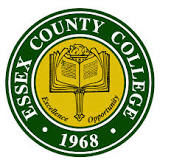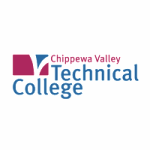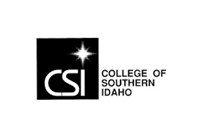What do they do?
Administer and maintain libraries or collections of information, for public or private access through reference or borrowing. Work in a variety of settings, such as educational institutions, museums, and corporations, and with various types of informational materials, such as books, periodicals, recordings, films, and databases. Tasks may include acquiring, cataloging, and circulating library materials, and user services such as locating and organizing information, providing instruction on how to access information, and setting up and operating a library's media equipment.
Also known as:
Access Services Librarian, Audio Visual Aids Technician (AV Aids Tech), Audio Visual Coordinator (AV Coordinator), Audio Visual Specialist (AV Specialist), Catalog Librarian, Cataloger, Collection Development Librarian, Elementary Librarian, Instruction Librarian, Instructional Technologist, Instructional Technology Specialist, Librarian, Library Media Specialist, Library Services Coordinator, Library Specialist, Media Specialist, Media Technician, Multimedia Services Coordinator, Multimedia Specialist, Reference and Instruction Librarian, Reference Librarian, Research Librarian, School Librarian, Technical Services Librarian, University Librarian, Youth Services Librarian
-
0.4%
Change
Ranks #59 in job growth rate450Job Openings
Ranks #13 in net job growth
Looking for colleges that offer a specific major? Use the College Match Tool to find your best-matched schools and discover your estimated Net Price!
- Master's degree (56%)
- Bachelor's degree (24%)
- Some college, no degree (8%)
- Doctorate or Professional Degree (5%)
- Associate's degree (4%)
- High school diploma equivalent (2%)
- Less than high school diploma (<1%)
People in this career often have these skills:
- Reading Comprehension - Understanding written sentences and paragraphs in work-related documents.
- Active Listening - Giving full attention to what other people are saying, taking time to understand the points being made, asking questions as appropriate, and not interrupting at inappropriate times.
- Speaking - Talking to others to convey information effectively.
- Writing - Communicating effectively in writing as appropriate for the needs of the audience.
- Critical Thinking - Using logic and reasoning to identify the strengths and weaknesses of alternative solutions, conclusions, or approaches to problems.
- Monitoring - Monitoring/Assessing performance of yourself, other individuals, or organizations to make improvements or take corrective action.
- Service Orientation - Actively looking for ways to help people.
People in this career often know a lot about:
- Customer and Personal Service - Knowledge of principles and processes for providing customer and personal services. This includes customer needs assessment, meeting quality standards for services, and evaluation of customer satisfaction.
- English Language - Knowledge of the structure and content of the English language including the meaning and spelling of words, rules of composition, and grammar.
- Computers and Electronics - Knowledge of circuit boards, processors, chips, electronic equipment, and computer hardware and software, including applications and programming.
- Education and Training - Knowledge of principles and methods for curriculum and training design, teaching and instruction for individuals and groups, and the measurement of training effects.
- Administrative - Knowledge of administrative and office procedures and systems such as word processing, managing files and records, stenography and transcription, designing forms, and workplace terminology.
People in this career often have talent in:
- Oral Expression - The ability to communicate information and ideas in speaking so others will understand.
- Oral Comprehension - The ability to listen to and understand information and ideas presented through spoken words and sentences.
- Written Comprehension - The ability to read and understand information and ideas presented in writing.
- Written Expression - The ability to communicate information and ideas in writing so others will understand.
- Information Ordering - The ability to arrange things or actions in a certain order or pattern according to a specific rule or set of rules (e.g., patterns of numbers, letters, words, pictures, mathematical operations).
- Near Vision - The ability to see details at close range (within a few feet of the observer).
- Category Flexibility - The ability to generate or use different sets of rules for combining or grouping things in different ways.
- Speech Recognition - The ability to identify and understand the speech of another person.
- Speech Clarity - The ability to speak clearly so others can understand you.
People in this career often do these activities:
- Process library materials.
- Teach others to use technology or equipment.
- Select educational materials or equipment.
- Search information sources to find specific data.
- Maintain operational records.
- Maintain inventories of materials, equipment, or products.
- Help patrons use library or archival resources.
- Direct department activities.
- Confer with others to conduct or arrange operational activities.
- Classify materials according to standard systems.
- Plan community programs or activities for the general public.
- Troubleshoot equipment or systems operation problems.
- Diagnose equipment malfunctions.
- Develop policies or procedures for archives, museums or libraries.
- Inspect materials or equipment to determine need for repair or replacement.
- Train staff members.
- Direct activities of subordinates.
- Develop library or archival databases.
- Attend training sessions or professional meetings to develop or maintain professional knowledge.
- Compile specialized bibliographies or lists of materials.
- Collaborate with other teaching professionals to develop educational programs.
- Negotiate purchases or contracts.
- Order instructional or library materials or equipment.
- Maintain inventory records.
- Maintain the inventory of equipment.
- Inventory materials or equipment.
- Serve on institutional or departmental committees.
- Operate audiovisual equipment.
- Construct exhibits or parts of exhibits.
This page includes data from:

 Occupation statistics: USDOL U.S. Bureau of Labor Statistics Occupational Employment Statistics
Occupation statistics: USDOL U.S. Bureau of Labor Statistics Occupational Employment Statistics








